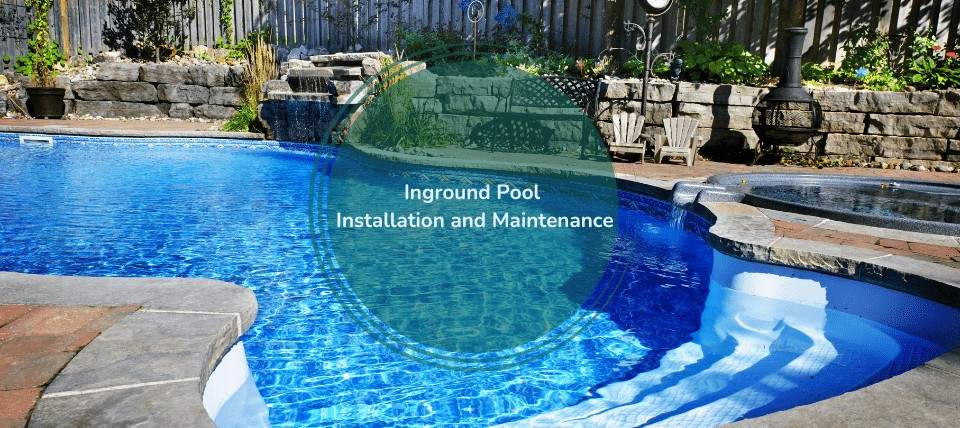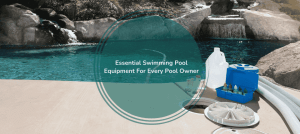Regardless of whether you enjoy hosting parties or prefer to spend time alone, a pool is a valuable investment that you will never regret.
Swimming pools are a great way to unwind and relax. However, it is essential to understand the differences between an inground and above-ground pool before taking the plunge. The installation and maintenance procedures for the two types of pools differ significantly. In this article, we will delve deeper into the details of both inground and above-ground pools to help you make an informed decision.
Shape
When it comes to installing an inground pool, the process of choosing the shape is a crucial step. The shape of the pool is the foundation of its aesthetics, and it should be chosen with utmost care. There are various shapes available in the market like L-shape, lazy L-shape, kidney shape, or any organic blob shape.
Inground pools are versatile and can be constructed in any desired shape. However, it’s important to keep in mind that once the installation starts, it’s not possible to change the shape of the pool. Hence, it is essential to invest time and effort in deciding the perfect shape. Choosing the right shape will ensure that you have a stunning pool that meets your expectations for years to come.
Material
In our previous blogs, we have highlighted the significance of choosing the right materials for your pool. The quality of materials plays a vital role in the longevity of your pool and the overall swimming experience. We have also discussed the different types of pool materials that are available in the market.
Here are the three most common types of pool materials that you should know about:
Vinyl is a popular material for pool construction, especially in colder regions as it is easy to winterize. However, it has certain drawbacks. Vinyl pools have a shorter lifespan compared to other materials and need to be replaced every 10 years. Additionally, they are susceptible to punctures, which can be caused by pets or sharp objects. As a result, installing a vinyl pool can be a costly affair due to its short shelf life. It is important to consider these factors before opting for a vinyl pool.
Concrete is a highly versatile material that can be an excellent choice for designing swimming pools in unconventional spaces. One of the reasons for its versatility is its ability to adapt to any shape. However, it is also one of the most expensive options available. Winterizing concrete pools can be a bit challenging due to the material’s porous nature. Nonetheless, concrete pools have a longer lifespan and can outlast other pool materials, such as vinyl.
Fiberglass is a material that is similar to vinyl, but it is less flexible and more expensive. While it is a durable option, fiberglass does have some limitations when it comes to size and shape availability. This can make it a less popular choice for those who are looking to create unique designs.
Inground Pool vs Above Ground Pool
Choosing the perfect swimming pool for your home can be a daunting task as there are a plethora of options available in terms of shapes, sizes, materials, and types. One of the primary decisions that you need to make is whether to opt for an above ground pool or an inground pool. Both types of pools offer relaxation, fun, and convenience, but each has its unique advantages and disadvantages that you need to consider before making a final decision.
Above ground pools are a popular choice for those who want a swimming pool without the high cost of an inground pool. The main reason for this is that there is no need for excavation, which can be a significant expense. Instead, above ground pools are built above the ground with a panelled wall made out of aluminum or steel, whic eliminates the need for digging.
Despite this, above ground pools are still durable and can last for many years, with some models even coming with a warranty of up to 40 years. Additionally, the materials used to make above ground pools are typically less expensive than those used for inground pools, making them a more affordable option for those on a budget.
Inground pools are swimming pools that are installed by excavating a pit in the ground and then solidifying the side walls with various materials. These materials can be quite expensive, making inground pools a significant investment. Additionally, the installation process for an inground pool can take some time, unlike above ground pools which are quicker to set up. Despite these factors, many people choose inground pools for their durability, aesthetic appeal, and overall value.
Maintenance tips
If you have a pool, it is important to maintain it properly in order to keep it in good condition and make it last longer. One of the best things you can do to maintain your pool is to skim it daily. This will help remove anything floating on the surface of the water before it sinks and clogs up your filter or other parts of your pool. If the circulation system of your pool gets affected, your pump could be damaged, which can result in expensive repair sessions. Therefore, regular skimming can save you a lot of money and effort in the long run.
If you own a swimming pool, investing in cleaning devices can be a great maintenance tip. Among the various cleaning devices, a pool vacuum cleaner can prove to be extremely helpful in keeping your pool clean and well-maintained. This device can effectively remove all the debris, dirt, and sand that get accumulated in the hard-to-reach areas of the pool. By investing in such cleaning devices, you can ensure that your pool remains healthy and sparkling clean, thereby providing you with a pleasant swimming experience.
Maintaining a clean pool filter is crucial to ensure that your pool remains healthy and safe for swimming. Pool filters come in three variants – Diatomaceous Earth, sand, and cartridge. While all three are effective in filtering out impurities, they require periodic cleaning to function optimally. Regular cleaning of these filters is essential to remove debris and contaminants that get stuck in them and prevent them from clogging up. By doing so, you can ensure that your pool water remains crystal clear and free of any harmful bacteria or contaminants.
Maintaining the proper water level is crucial for the upkeep of your swimming pool. Whether you use your pool frequently or occasionally, water loss is inevitable and can result in severe damages. To ensure the longevity of your pool, it is important to maintain the recommended water level set by your pool contractor. After each swimming session, it is recommended to check the water level and refill the pool to the suggested limit. This simple step can save you from costly repairs and ensure a healthy and enjoyable swimming experience.
Swimming pools are a great addition to any home as they provide a source of relaxation and entertainment. Regardless of whether you enjoy hosting parties or prefer to spend time alone, a pool is a valuable investment that you will never regret. After installation, you will find that pools offer much more value than the initial information overload may suggest.





